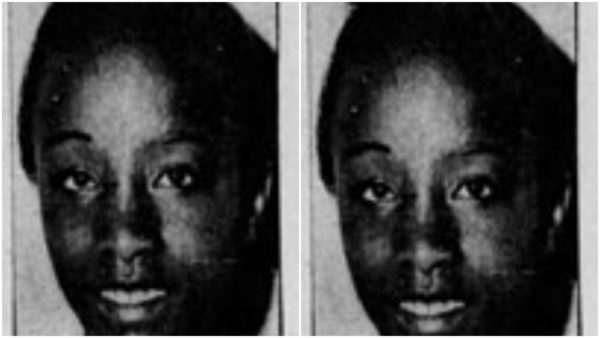‘A Trailblazer’: Senate Passes Resolution to Honor Pioneering 1936 Black National Spelling Bee Finalist Who Was Given an Unauthorized Word
People on social media and all over celebrated Black girl magic last July after 14-year-old Zaila Avant-garde became the first Scripps Spelling Bee champion from Louisiana and the second Black Scripps champion in the competition’s 96-year history.
Jody-Anne Maxwell, a 12-year-old girl from Jamaica, was the first in 1998.
However, many believe another Black logophile might have had the opportunity to win the prestigious honor, but she was said have been cheated as result of racism during the Jim Crow era. Now the Senate is celebrating her with a resolution to honor her and her perseverance, according to a press release from Ohio Sen. Rob Portman’s office.
In 1936, 13-year-old MacNolia Cox became the first Black student to qualify for the competition’s finals. However, her journey to Washington, D.C., was unlike those of her white peers.
MacNolia Cox (Akronlibrary.org)
The young girl from Akron, Ohio, was forced to stay in a segregated hotel and she wasn’t allowed to sit with the other participants during the event.
However, what author of “M-A-C-N-O-L-I-A, a book about Cox and the National Spelling Bee” Van Jordan called “despicable” is that judges, who were all white Southerners, gave Cox a term that was not on the list of 100,000 contest-approved words judges could present to contestants.
The young student spelled “Nemesis,” which was capitalized and barred from the contest, incorrectly. There was outrage. Still, she ended the competition in fifth place, taking home a $75 prize award. “They pulled a word that was not on that list, and you can’t make this up: the word was nemesis,” Van Jordan added.
Following the historic win from Avant-garde, Portman and fellow Sen. Sherrod Brown teamed up to pass a “bipartisan resolution to honor the life and legacy of Ohio native MacNolia Cox,” Portman said in a statement to New5 Cleveland.
“As a 13-year old girl, MacNolia traveled to Washington, D.C. as one of the first Black students to compete in the Scripps National Spelling Bee where she endured segregation and racial discrimination. MacNolia’s determination to display her talents, all while many did not want to see her succeed, continues to encourage and inspire young students of color today,” Brown said.
“As the first of two Black students to compete in the National Spelling Bee as a finalist, MacNolia Cox was a trailblazer for those who would follow in her footsteps,” the politician added.
Sept. 12, 2021 marked the 45th anniversary of Cox’s 1976 death. She died from breast cancer at the age of 53.

